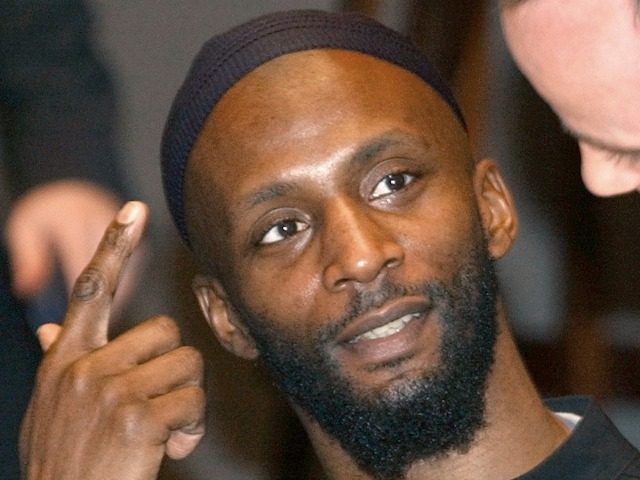The Pentagon is reportedly unable to confirm whether an Islamic State British jihadist spent time in the U.S. military prison at Guantánamo Bay, Cuba before blowing himself up in a vehicle full of explosives at an Iraqi army base near Mosul, Iraq.
Born Ronald Fiddler, the British Muslim convert who carried out the suicide attack on behalf of the Islamic State (ISIS/ISIL), changed his name to Jamal Udeen al-Harith and used the nom de guerre Abu-Zakariya al-Britani, according to various news reports.
In an email to Fox News, Pentagon spokesman Maj. Ben Sakrisson acknowledges that the U.S. held a British suspected terrorist identified by a name slightly different from the one used by the alleged suicide bomber — Jamal Malik al-Harith — at the Guantánamo prison between February 2002 and March 2004.
“We cannot confirm his death, as the occurrence of the same name does not necessarily equate to this being the same individual,” the major told the news network.
Echoing Maj. Sakrisson, an unnamed U.S. defense official also told Fox News it was “very much in doubt” whether the American military imprisoned Harith for two years at the Guantánamo facility, known as Gitmo.
Before being taken to Gitmo in 2002, the American military apprehended Malik al-Harith in Pakistan in 2001 as a suspected Taliban supporter.
The U.K. government reportedly awarded Malik Hadith an estimated $1.2 million in taxpayer funds in compensation for serving time at Gitmo after the jihadist claimed British agents knew or were complicit in his mistreatment.
Harith had been “assessed as being an Al Qaeda fighter and considered a ‘high threat to the US,” reports Daily Mail.
Lobbying by then-Home Secretary David Blunkett under Tony Blair’s Labour government prompted the U.S. government to release the terrorist.
ISIS claimed responsibility for the suicide bombing this week, using Harith’s pseudonym to identify him.
In a statement, the terrorist group revealed, “The martyrdom-seeking brother Abu Zakariya al-Britani – may Allah accept him — detonated his explosives-laden vehicle on a headquarters of the Rafidhi army and its militias in Tal Kisum village, southwest of Mosul.”
“Rafidhi” is a derogatory term used to describe Shiite Muslims, who ISIS considers to be heretics.
The village of Tal Kisum maintains a heavy presence of the Iraqi state-sponsored Popular Mobilization Units (PMU), an Iran-allied umbrella group of predominantly Shiite militias.
It remains unclear how many casualties the PMU suffered at the hands of the ISIS suicide bombing against at the village of Tal Kisum, home an Iraqi army base and the Iran-backed Shiite umbrella group’s headquarters.
However, ISIS has claimed “many casualties,” without providing a precise count.
Fighters from the PMU, also known as also known as the Popular Mobilization Forces (PMF) and al-Hashd al-Shabi, are participating in the ongoing U.S.-backed offensive to recapture Mosul from ISIS, which also involves tens of thousands of Iraqi security forces and Kurdish Peshmerga troops, among other fighters.
Harith traveled to Syria via Turkey in April 2014 to engage in jihad on behalf of ISIS, leaving his wife and five children behind, notes BBC.
The Telegraph points out, “[Harith] entered Syria via Turkey in 2014 to join Islamic State of Iraq and the Levant, leading to questions at the time about the monitoring of terrorist suspects. It also raised the possibility that compensation money paid by British taxpayers had been handed on by him to [ISIS].”
According to the British government, up to 850 people considered national security threats have traveled to join jihadist groups in the Middle East.
“Just under half are thought to have returned to Britain while 15 per cent are believed to have been killed,” notes the Telegraph.
The latest estimate by the Office of the Director of National Intelligence (ODNI), shows that 30 percent of released Gitmo detainees are suspected or confirmed to have re-engaged in terrorist activities.
A draft executive order obtained by the New York Times (NYT) suggests President Donald Trump’s administration is considering ordering the Pentagon to continue using Gitmo for the detention of newly captured enemy combatants linked to al-Qaeda, the Taliban, and the Islamic State.

COMMENTS
Please let us know if you're having issues with commenting.